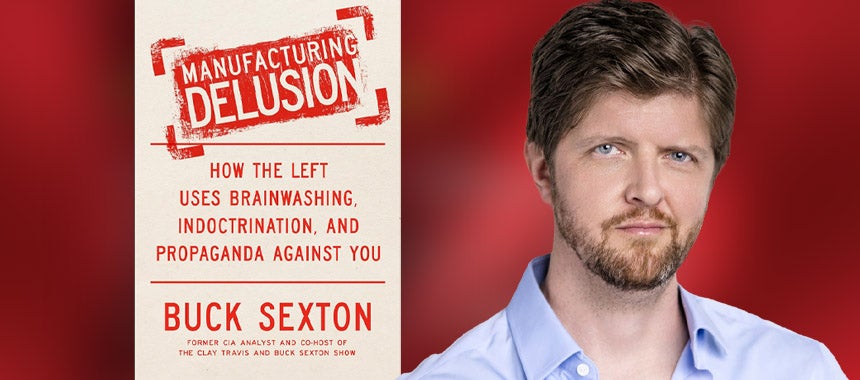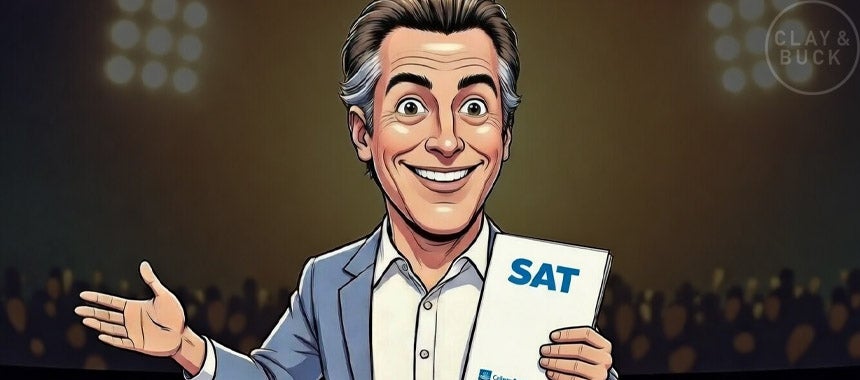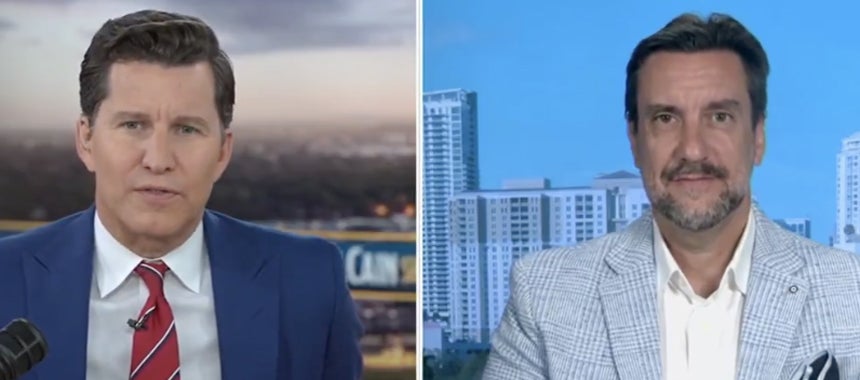Jack Carr Breaks Down the U.S. Strike on ISIS
3 Feb 2022
BIDEN: The United States military forces successfully removed a major terrorist threat to the world, a global leader of ISIS known as Hajji Abdullah. Knowing that this terrorist had chosen to surround himself with families, including children, we made a choice to pursue a Special Forces raid at a much greater risk than our — to our own people rather than targeting him with an air strike. We made this choice to minimize civilian casualties. Last night’s operation took a major terrorist leader off the battlefield, and it sent a strong message to terrorists around the world: We will come after you and find you.
BUCK: Welcome back to the Clay and Buck show. That was President Biden earlier today on the special operations raid that targeted ISIS leader Abu Ibrahim al-Hashimi al-Qurayshi, who is somebody that I don’t think many folks out there had heard of and let you work in, you know, anti-ISIS targeting.
 We want to bring somebody in to help us analyze what we know so far about this raid and just where we stand in the War on Terror as it is. Jack Carr is with us now. He’s a former Navy SEAL sniper and task unit commander with service in Iraq and Afghanistan. He’s also the best-selling author of The Terminal List series. His latest, In the Blood, is available for pre-order. Jack, thanks for being with us.
We want to bring somebody in to help us analyze what we know so far about this raid and just where we stand in the War on Terror as it is. Jack Carr is with us now. He’s a former Navy SEAL sniper and task unit commander with service in Iraq and Afghanistan. He’s also the best-selling author of The Terminal List series. His latest, In the Blood, is available for pre-order. Jack, thanks for being with us.
CARR: Oh, thanks for having me on.
BUCK: So you see this one, and this is some photos, some video, of the raid site. It’s a house in northwest Syria. Sent in apparently Apache gunships, Special Forces and/or special operations. I should say “units.” They didn’t really specify that much about who exactly was involved from what I’ve seen so far. He, the terrorist leader apparently detonated a suicide vest or detonated a bomb of some kind, killing a number of civilians. What do you make of this raid in terms of is this a successful raid? Did we want to actually capture and try to get intel? What are your thoughts?
CARR: Capture versus kill, you never know how that’s gonna play out these days especially in today’s political climate. So, you know, he took himself bookstore out the same with a that his predecessor, al-Baghdadi, did in 2019 with a suicide vest at least that’s what is being reported and took out his wife and some of his kids at the same time.
So what’s not really being focused on as much is that also a top lieutenant of his was killed in the raid by U.S. Special Operations Forces on another level of that house — and oftentimes that can be even more important than decapitating that head of the snake, to get that top lieutenant, essentially the COO, who is managing those day-to-day operations.
So we really took out two terrorists targets, did a proof of concept under this new administration, and interestingly enough, this terrorist leader was acting in a similar fashion to what bin Laden did: Staying in one place, not leaving his compound, not leaving his believe, only going up to the roof for some fresh air every now and again.
Which is different. If you remember, Yasser Arafat would change locations almost daily, at least every couple days. But it just shows how they’re adapting and how we need to adapt as well. But also, you know, we decided not to take him out with some sort of a strike that would put innocent civilians at more risk. And that’s what I saw during my time in Iraq and Afghanistan is that was a…
Whether it was us going in or it was some sort of an air strike that we were calling in, that was of the highest importance is to protect those civilians. So the other part of that is you can show a dead body. It can’t be spun as much as it could if you just have a demolished building where you say someone was killed. So you actually have a body; there’s proof of that death there.
 And also safety of flight. Just getting to and from. We saw that helicopter had to be destroyed on target or close to the target, anyway. And it just goes to show that just getting to and from these locations is tough — and whether that means you’re on the ground somewhere moving in vehicles or you’re in the air.
And also safety of flight. Just getting to and from. We saw that helicopter had to be destroyed on target or close to the target, anyway. And it just goes to show that just getting to and from these locations is tough — and whether that means you’re on the ground somewhere moving in vehicles or you’re in the air.
That safety of flight is still so dangerous for everyone involved in these operations — and the specter of Desert One in 1980, Mogadishu, Black Hawk Down, the helicopter that crashed in the bin Laden raid, these things are always at the forefront of the planning for these types of operations.
CLAY: Jack, do we have any indications early on…? Certainly, we saw the terror attack that happened when 13 soldiers lost their lives in Afghanistan. Do we have any indications early on whether the new Taliban control in Afghanistan is increasing the overall reach of terrorist organizations in the Middle East or if the Taliban is actually doing some of what they said they would, which is preventing — at least in theory — the rise of ISIS? Do we have any indications right now how this is going?
CARR: That’s a tough one to evaluate. I hope we have people that are on this daily, and I hope we left behind human networks in Afghanistan. We were there for 20 years and, as you know, the intelligence services, part of what we do there is leave behind these long-term, deep-penetration type operations and that our sources are still solid.
After 20 years, I have to think that that is the case and that we’re getting some very good information back on that front. But there’s a lot to deal with over there. At the same time, without us being there daily and keeping that on their toes, I don’t see how they can’t be expanding outside-of-the region when it comes to building networks, adapting, and pushing that reach — whether it’s just regionally or virtually — in the countries that they are not very close to as far as proximity.
BUCK: We’re speaking to Jack Carr, former Navy SEAL, author of the Terminal List series. In the Blood, his latest, is available for pre-order. Jack, I want to ask, just yesterday, I believe… Clay, wasn’t yesterday the first day where they started to dismiss active-duty members of the military who refused to get the vaccine.
CLAY: Yes.
BUCK: As somebody who served and served in front-line combat roles — and I’m sure still has many brothers and sisters who are still in the Armed Services — what do you make of that?
 CARR: It’s very disheartening that everything has become so politicized as far as this issue goes. “The science” thing, quote-unquote — the science — seems to be evolving, people at the senior levels don’t really have the greatest idea of what is happening with covid and its different iterations. So it’s just very disheartening to me that it’s politicized and that we are essentially targeting certain people and trying to move them out of different positions in government just because they have some questions about what I think still — as of today — is an experimental vaccine.
CARR: It’s very disheartening that everything has become so politicized as far as this issue goes. “The science” thing, quote-unquote — the science — seems to be evolving, people at the senior levels don’t really have the greatest idea of what is happening with covid and its different iterations. So it’s just very disheartening to me that it’s politicized and that we are essentially targeting certain people and trying to move them out of different positions in government just because they have some questions about what I think still — as of today — is an experimental vaccine.
So just that it’s been politicized so much is disheartening. You saw that even a Navy chaplain wasn’t allowed not to take it for religious-exemption purposes. So when you have an actual chaplain, not just one you suspect might be (chuckles) just trying to get around some sort of a mandate. This is an actual chaplain that is in the Navy for this reason, not getting a religious exemption. It’s just disheartening to me that everything is so politicized on that front.
CLAY: Jack, when you look back to the raid in Syria and the killing of the ISIS operative, how do you value or weigh the cost of potential innocent life versus the benefit of being able to eliminate one of these top leaders of a terrorist organization? In other words, there’s the report that there might have been 10 people — women and children potentially — who died as a part of this raid, again early reports.
Is there a number when you’re experience as a Navy SEAL where you say, “Okay, it might be worth the risk of 10 other people dying, but it’s not worth a hundred.” How do you balance the risk versus the danger here of raids as it pertains to, quote-unquote, innocent life versus a terrorist target? What kind of balancing acts have you seen?
CARR: Yeah. So collateral damage is something that you hate to say “always,” but it is always a part of warfare. So that being said, my personal experience downrange in Iraq and Afghanistan was that if there was the (audio drop) dying (audio drop) operation that we could look at ahead of time, we wouldn’t do it. And that goes at every level, tactical, operational, strategic.
All of those levels were in alignment there, and I think that is really what one of the main things that differentiates us from our enemies. We maintain that moral high ground. We put thought into this. We put ourselves at risk so as to not hurt or kill innocent civilians to the best of our possible ability — and then you see our enemies. What do they do?

They detonate that suicide vest, kill their wife and children, both this latest target and al-Baghdadi before him. And even juxtapose that also very interestingly with bin Laden, who had time to prepare, who there were shots fired in the compound already. He had an AK in his room, and did not defend himself in the end like he asked so many others to do for him.
So very interesting these different leaders. But the last two — one last night and al-Baghdadi before him — they took the lives of innocent people where we do the exact opposite, and I think that is really the main differentiator between us and our enemy. We maintain that moral high ground every chance we get.
BUCK: Jack Carr, former Navy SEAL. Check out the Terminal List series and his latest, In the Blood, available for pre-order now. Great author and a great American. Jack, thanks for being with us.
CARR: Oh, thanks for having me on. You guys take care.
CLAY: Good stuff, as always.
Recent Stories

Manufacturing Delusion Is On Sale Now!
Buck's book is one of the most popular on the charts. Get it now.

What Is Menticide — And Why America Is Close to It
It's a fascinating aspect to Buck's new book, Manufacturing Delusion.

Gavin Newsom Says Something Stupid… and Gets a Free Pass (Because He’s a Democrat)
Was it racist? Or just typical Newsom BS?







